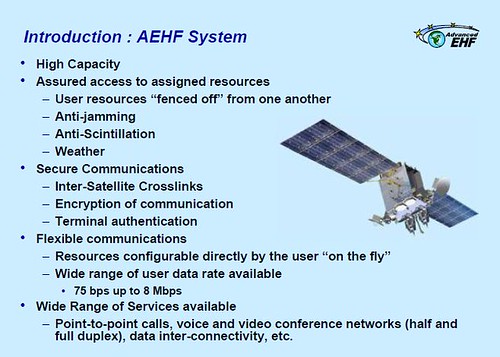- Comms
- Law
- Medic
- News
- Opinion
- Threat Watch
- Training
- Warrior Tools
- Accessories
- Ammo
- Body Armor
- Books
- Clothing
- Commo
- Gear
- Handguns
- Holsters
- Knives
- Long Guns
- ACC
- Accuracy International
- Barrett
- Benelli
- Beretta
- Blaser
- Bushmaster
- Custom
- CZ
- Desert Tactical Arms
- DPMS
- FN
- Forums
- HK
- IWI
- Kel-Tec Long Guns
- LaRue
- LWRC
- McMillan
- Mosin Nagant
- Mossberg
- Para
- Remington
- Rock River Arms
- Ruger Long Guns
- Sabre Defense
- Sako
- SIG Sauer
- SKS
- Smith & Wesson Long Guns
- Springfield
- Styer
- Weatherby
- Wilson Combat
- Winchester
- Magazines
- Maintenance
- Navigation
- Optics
- Sights
- Tech
- Warriors
Archive for category Comms
Brunton – The Leader in Portable Power Introduces the Resync™ For 2012
Press Release
RIVERTON, WYOMING, Brunton Hunting, a premiere leader in optics, portable power, navigation, instruments, lighting and gear announces the addition of the Resync to their portable power pack line.
The Resync is Brunton’s solution for demanding USB devices like tablet computers and e-readers, and is also compatible for smaller devices such as smart phones and GPS units. With a power gauge and auto shut-off, you never need to worry about overcharging. The all weather shell tough rubberized Adventure-Armor™ provides a positive grip and impact protection for extreme use. High efficiency ports and protective Adventure-armor™ makes this portable power pack the back-up of choice for hunters out in the field.
Weighing just 10 ounces, you can easily stow the Resync in your backpack when heading out for your big game hunts. It is waterproof and has a durable rubberized shell to help protect it from the elements.
Features:
- Output: 5 volts 2,100 mA USB
- Input: 5 volt USB or 12 volt DC, compatible with USB-based or 12v Brunton solar panels
- Capacity: 9000 mA rechargeable Lithium Polymer battery
- Compatible with Brunton Sync Techâ„¢ enabled headlamps and task lights
- Water resistant
- Durable rubberized shell
- Power gauge and auto shut off
- Dimensions: 2.7†x 5.7†x 0.9â€
- Weight: 10 oz.
MSRP: $168.00
ABOUT BRUNTON: The leading manufacturer of equipment for the outdoor adventure, Brunton’s passion for innovation and quality dates back to 1894. Brunton delivers performance, comfort and convenience to the outdoors with a full line of portable power, navigation, lighting, weather and optical products. See Brunton’s full line at www.bruntonhunting.com.
4th Amendment Under Attack Yet Again
This stuff is serious. Maybe most of the “People” protected by the Constitution do not have enough imagination to see how terribly wrong this is going to go for all of us, and I mean ALL of us. Well, I can imagine it because I’ve worked for governments, I know what they are capable of, and I promise you it will not be good. To quote Bogey, “maybe not today, maybe not tomorrow, but soon, and for the rest of your life”, if you can call existence in a police state a life. Think this is hyperbole? We’ll see.
I know first hand that getting warrants can be a pain in the ass, but too bad, its our job to defend and protect the constitution, not whine about how hard it is to do our jobs and still abide by the “current” law, or to look for shortcuts and ways to get around the only document that stands between freedom and totalitarianism.
But don’t worry, I’m clearly over reacting because if I wasn’t, those vigilant watchdogs of the Fourth Estate would surely mention the trampling of our fundamental freedoms in their newspapers, websites and TV news shows, wouldn’t they?
Here is the latest assault on our freedoms from the EFF
DOJ Official: Any Privacy Protection is Too Much Privacy Protection for Cell Phone Tracking
Jason Weinstein, a deputy assistant attorney general in the Department of Justice’s criminal division, told a panel at the Congressional Internet Caucus Advisory Committee’s “State of the Mobile Net” conference yesterday that requiring a search warrant to obtain location tracking information from cell phones  would “cripple” prosecutors and law enforcement officials. We couldn’t disagree more.
For years, we’ve been arguing that cell phone location data should only be accessible to law enforcement with a search warrant. After all, as web enabled smart phones become more prevalent, this location data reveals an incredibly revealing portrait of your every move. As we’ve waged this legal battle, the government has naturally disagreed with us, claiming that the Stored Communications Act authorizes the disclosure of cell phone location data with a lesser showing than the probable cause requirement demanded by a search warrant. Read the rest of this entry »
Everyone Has Been Hacked. Now What?
Posted by Gary in Comms, Threat Watch on 6/May/2012 17:03
From; Threat Level
On Apr. 7, 2011, five days before Microsoft patched a critical zero-day vulnerability in Internet Explorer that had been publicly disclosed three months earlier on a security mailing list, unknown attackers launched a spear-phishing attack against workers at the Oak Ridge National Laboratory in Tennessee. More
New Army Radio Passes Ranger Combat Test
Posted by Gary in Comms, News, Warrior Tools on 5/May/2012 10:47
From: KitUp
It may not be long before infantrymen on foot can track their buddies’ positions on ruggedized smartphones. The Army’s best bet for achieving this battlefield milestone lies in its new Rifleman Radio. Units from the 75th Ranger Regiment were pleased with the performance of the handheld Joint Tactical Radio System during a recent battlefield evaluation in Afghanistan.
Mobile users more vulnerable to phishing scams
2011 story from: Fierce CIO
Security vendor: Mobile users more vulnerable to phishing scams
January 10, 2011 — 12:18am ET | By Caron Carlson
It’s not as though we need more reminders of the security risks mobile devices pose to the enterprise, but according to security vendor Trusteer, mobile users are three times more likely to be the victim of phishing scams than desktop users.
According to Trusteer’s research, based on a review of log files of a number of web servers hosting phishing sites, when mobile users access phishing sites, they are three times more likely to hand over their login data. Why are mobile users so gullible? One possibility is that it is more difficult to detect a phishing site on a mobile device, the company suggests.
Part of the vulnerability for mobile users is simply that they are always connected and inclined to read their email as it arrives, writes Trusteer CEO Mickey Boodaei, in a post on his company’s blog. “The first couple of hours in a phishing attack are critical. After that many attacks are blocked by phishing filters or taken down,” he writes. “Hence mobile users are more likely to be hit by Phishing just because they’re ‘always on.'”
Solar Storm
From: Spaceweather.com
CME IMPACT: A coronal mass ejection (CME) hit Earth’s magnetic field on March 8th around 1100 UT. The impact was weaker than expected, sparking only a mild (Kp=5) geomagnetic storm. However, the storm could intensify in the hours ahead depending on electromagnetic conditions in the wake of the CME. High-latitude sky watchers should be alert for auroras. Aurora alerts: text, phone.
NSA Creates Secure Call System
Technology Review reports that the NSA has devised a system in which phones with the Android software are able to make encrypted phone calls.
Let’s hope that this tech trickles down to the consumer market.
Web Links Could Compromise Your Smartphone
Technology Review reports that if you have a smartphone that runs a version of Android, be careful about the links you click:
A chilling demonstration to a small, packed room at the RSA security conference today showed how clicking a single bad Web link while using a phone running Google’s Android operating system could give an attacker full remote control of your phone.
Forced Hard Drive Decryption Is Unconstitutional, Appeals Court Rules
From: Threat Level
Forcing a criminal suspect to decrypt hard drives so their contents can be used by prosecutors is a breach of the Fifth Amendment right against compelled self-incrimination, a federal appeals court ruled Thursday.
It was the nation’s first appellate court to issue such a finding. And the outcome comes a day after a different federal appeals court refused to entertain an appeal from another defendant ordered by a lower federal court to decrypt a hard drive by month’s end.
Thursday’s decision by the 11th U.S. Circuit Court of Appeals said that an encrypted hard drive is akin to a combination to a safe, and is off limits, because compelling the unlocking of either of them is the equivalent of forcing testimony.
Marines Test New Long Range Radios
From Wired’s Danger Room:
The Harris radios Marines carry in Afghanistan, hooked up to the military’s Joint Tactical Radio System, have a range of under 100 miles. Not bad for when you’re patrolling Anbar or Helmand provinces.
Enter the Distributed Tactical Communications System, a brainchild of the futurists and contrarians at the Marine Corps Warfighting Laboratory. The DTCS, as it’s known, would more than double the reach of the Marines’ connectivity, allowing them to communicate from 250 nautical miles, via satellite. And that’s for starters: The Lab says the system has a 30 percent success rate in tests of 700 miles.
Woman Ordered To Give Up Password
From Wired.com:
The authorities seized the Toshiba laptop from defendant Ramona Fricosu in 2010 with a court warrant while investigating alleged mortgage fraud. Ruling that the woman’s Fifth Amendment rights against compelled self-incrimination would not be breached, U.S. District Judge Robert Blackburn ordered the woman in January to decrypt the laptop.
LAPD Bails on Google Apps Because of Security & Privacy Concerns
Posted by Gary in Comms, News, Threat Watch on 16/Dec/2011 14:23
From: Cloudline
Microsoft’s Office 365 isn’t the only cloud service losing high-profile customers to security and privacy concerns. Google got a dose of the same medicine on Wednesday, with the LA Timesreporting that the LAPD is now backing out of its contract with Google so it can stick with its on-premises Novell platform for e-mail.
The LAPD and the city attorney’s office ultimately decided, some two years after deciding to move their e-mail systems to the cloud in order to save costs, that no cloud computing solution is really compatible with the federal security guidelines that the departments are required to follow.
“It will be difficult for law enforcement to move to a cloud solution until the [security requirements] and cloud are more in line with each other,†LAPD’s CIO told the LA Times.
The Cyber Security Industrial Complex
Posted by Gary in Comms, News, Threat Watch on 10/Dec/2011 14:07
From: MIT
A claim by Wikileaks that documents it released last week provide evidence of a “secret new industry” of mass surveillance was as breathless as previous pronouncements from Julian Assange’s organization. But the material does provide a stark reminder that our online activities are easily snooped upon, and suggests that governments or police around the world can easily go shopping for tools to capture whatever information they want from us.
The take-home for ordinary computer users is that the privacy and security safeguards they use—including passwords and even encryption tools—present only minor obstacles to what one researcher calls the “cyber security industrial complex.”
“There is no true privacy in any computing systems against determined government-level surveillance,” says Radu Sion, a computer scientist at Stony Brook University who directs its Network Security and Applied Cryptography Laboratory. He says that as computing systems become more complex, and reliant on components from many different suppliers, the number of vulnerabilities that can be exploited by attackers and surveillance tools will grow.


